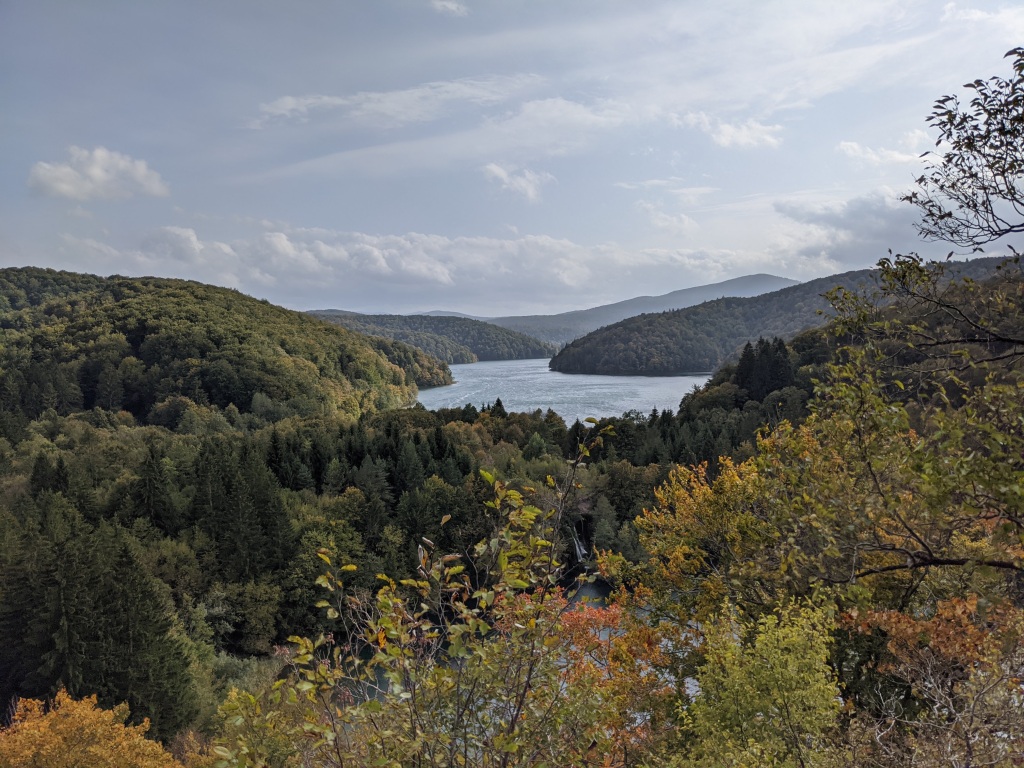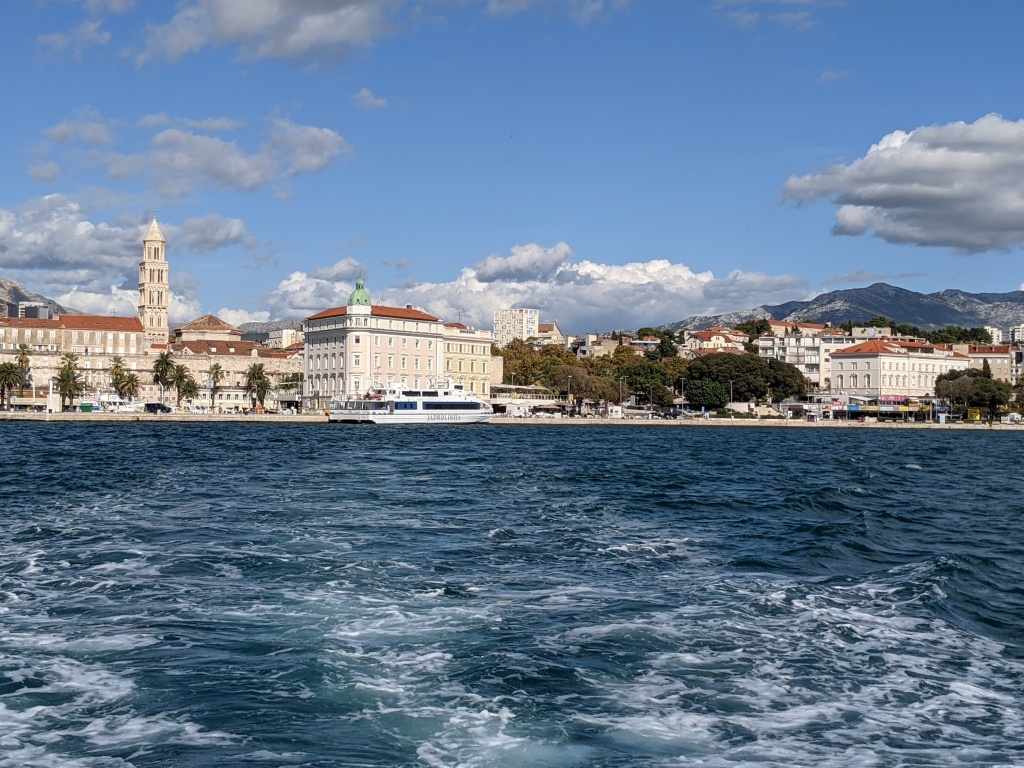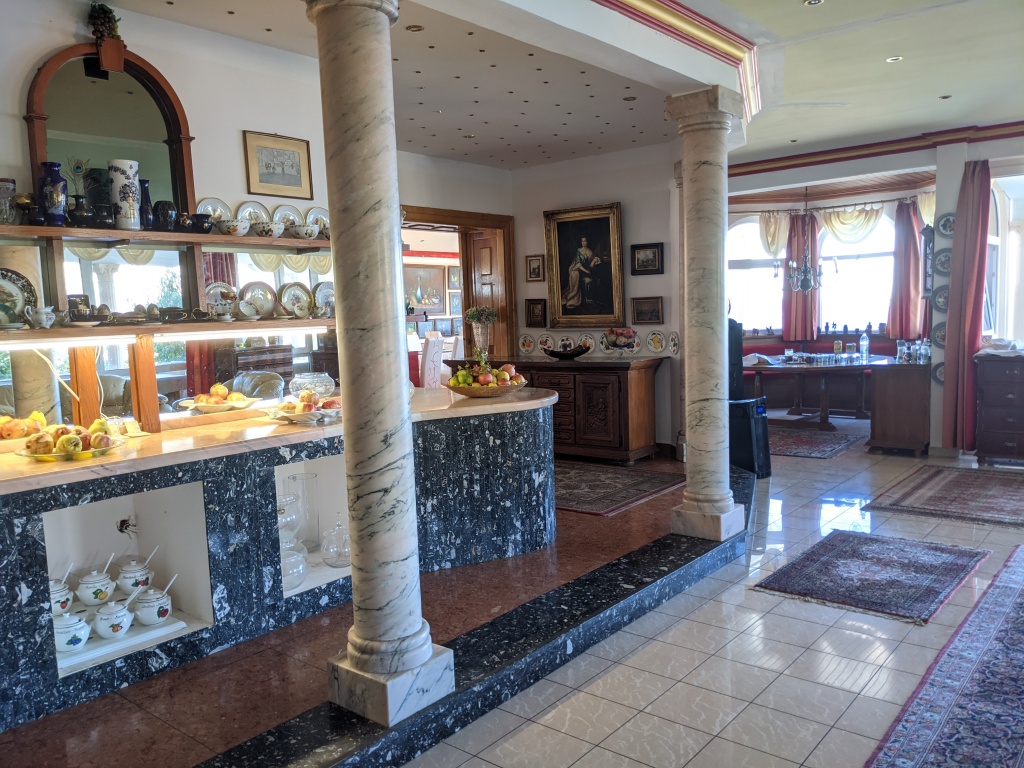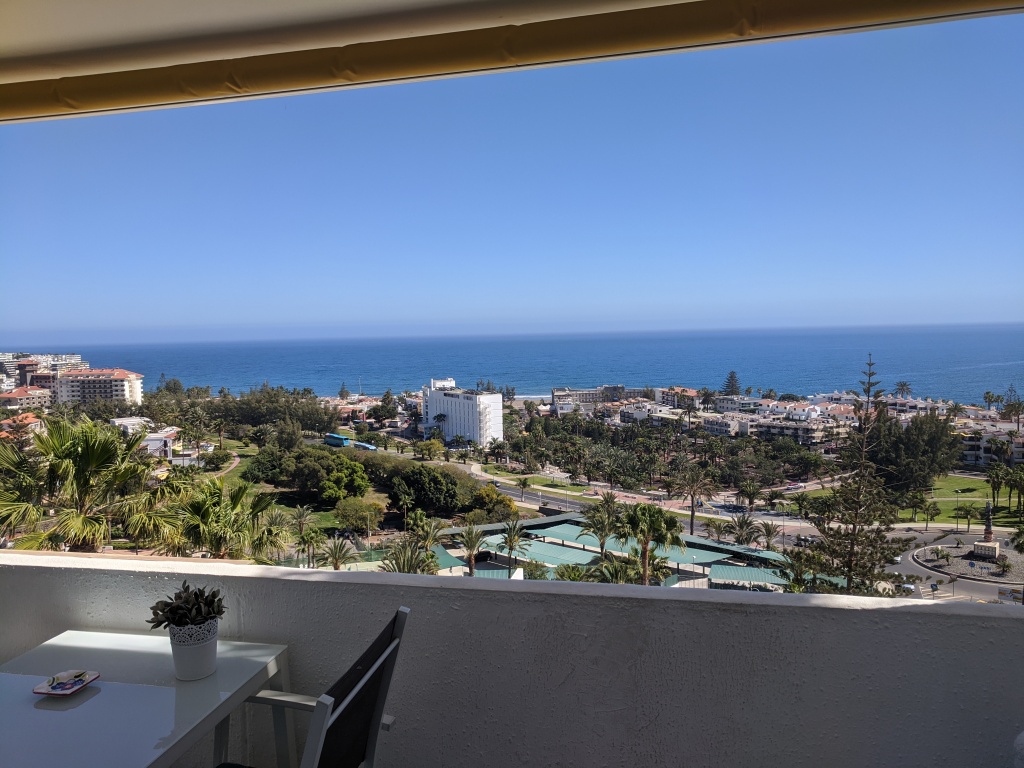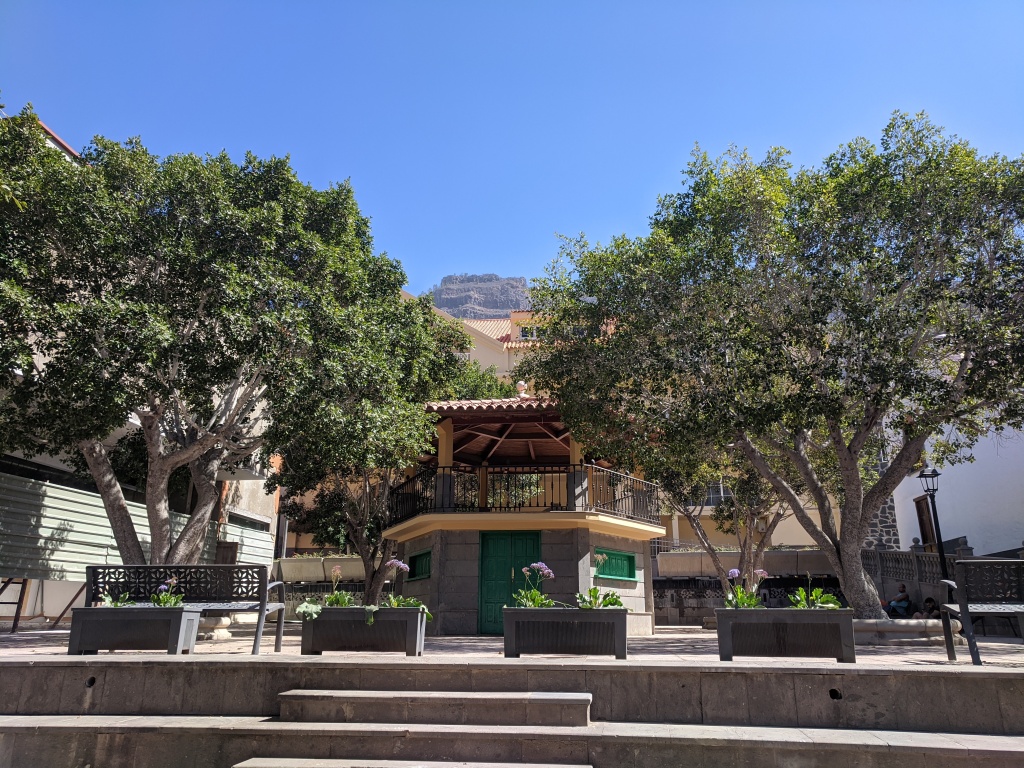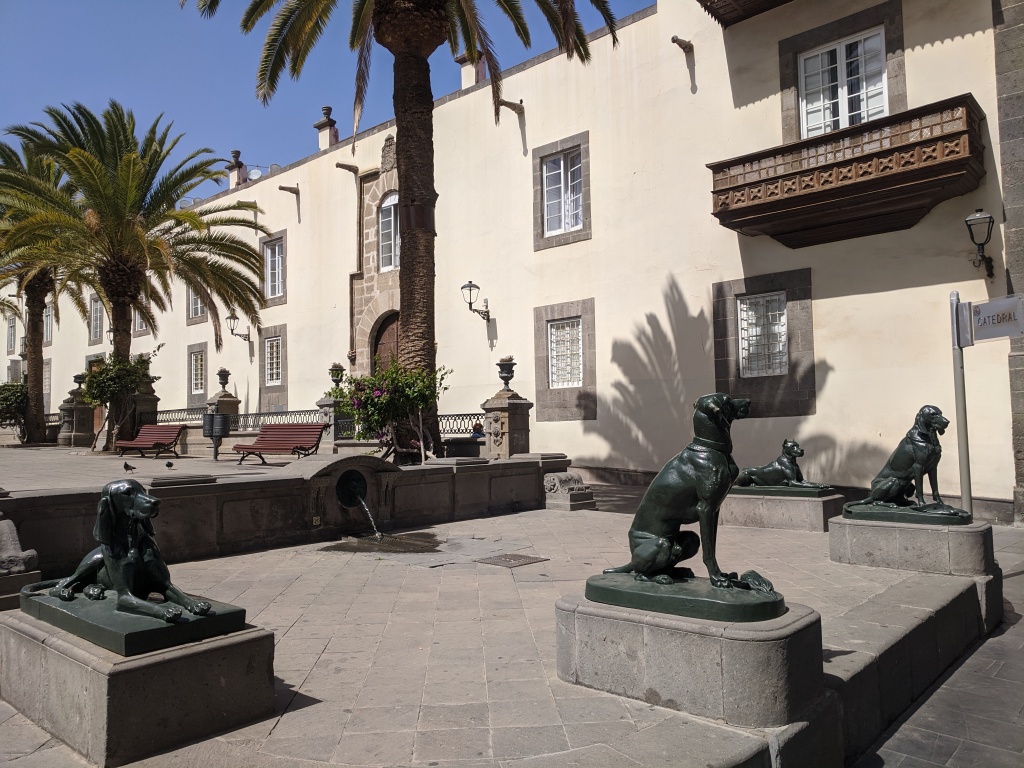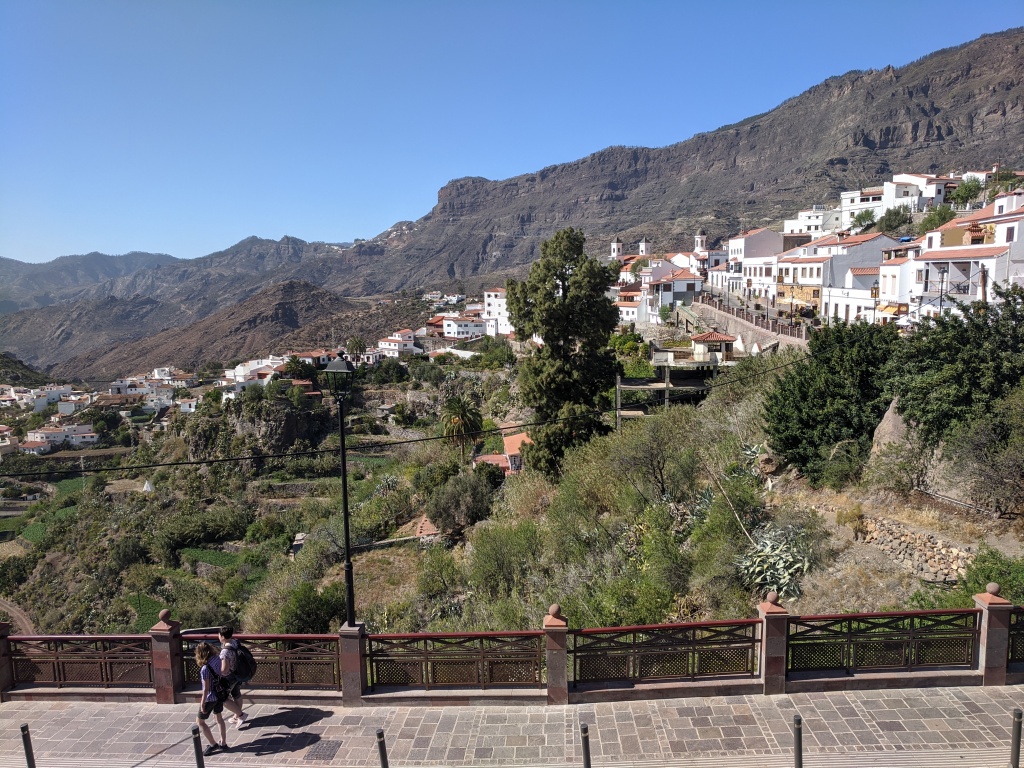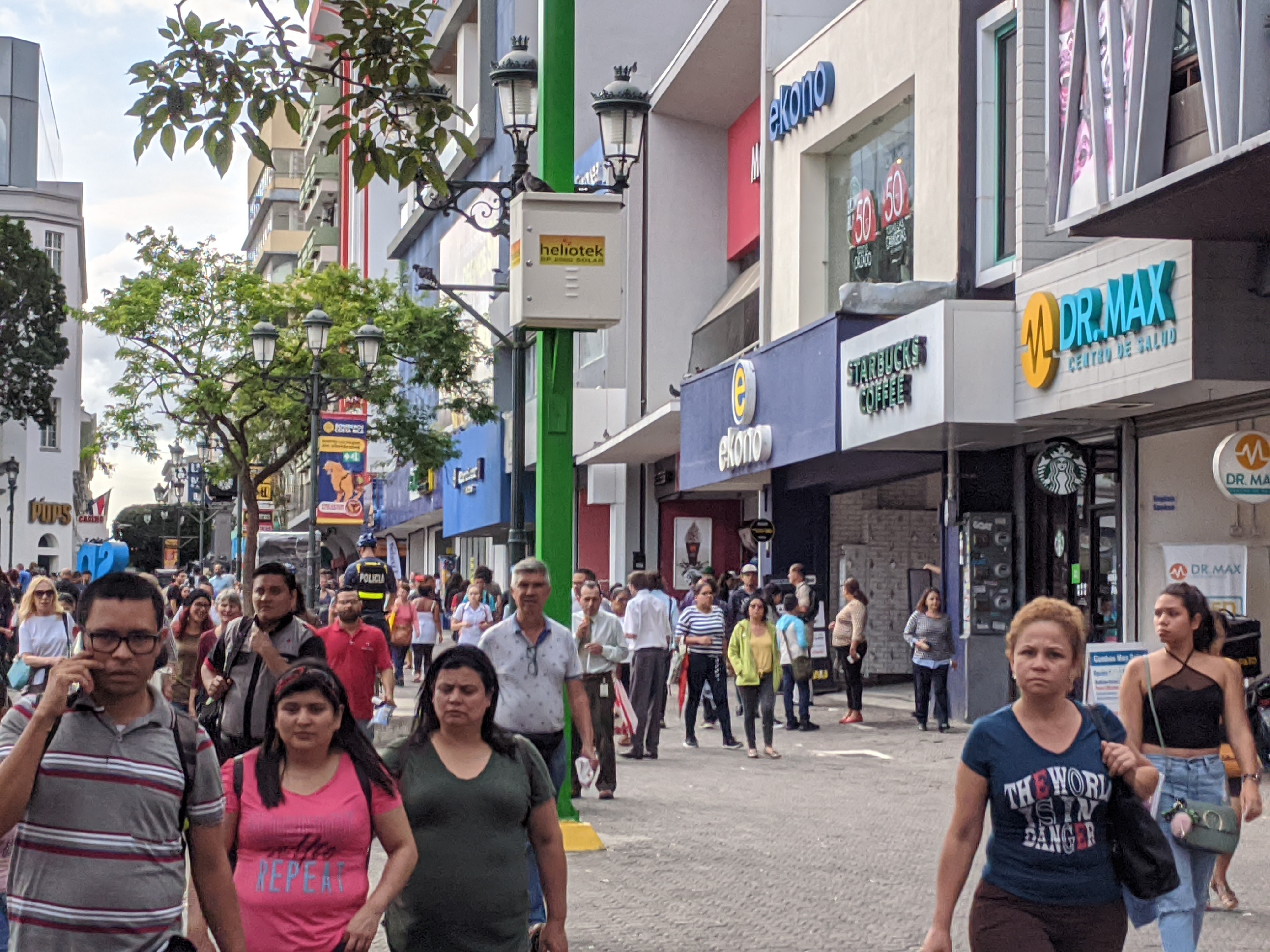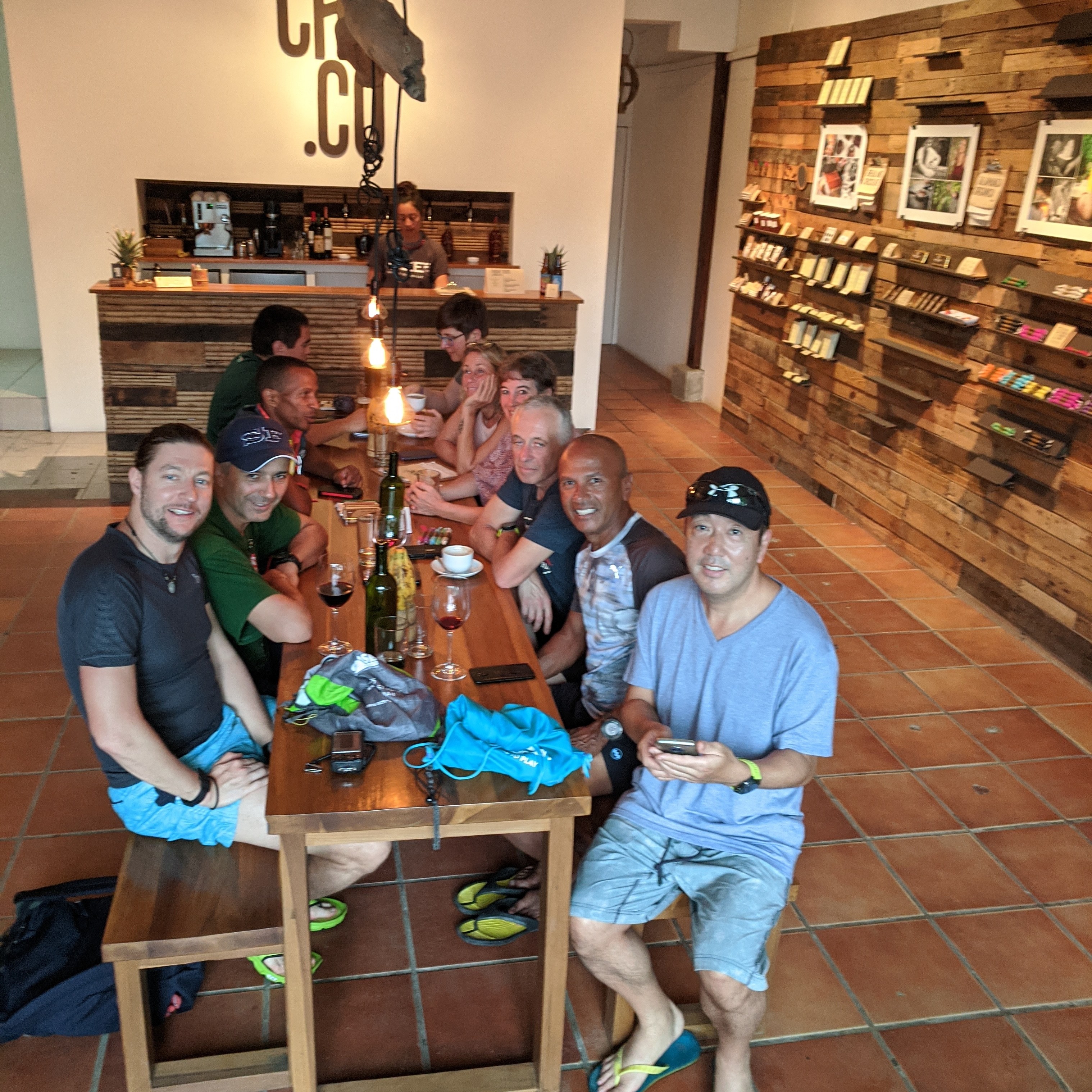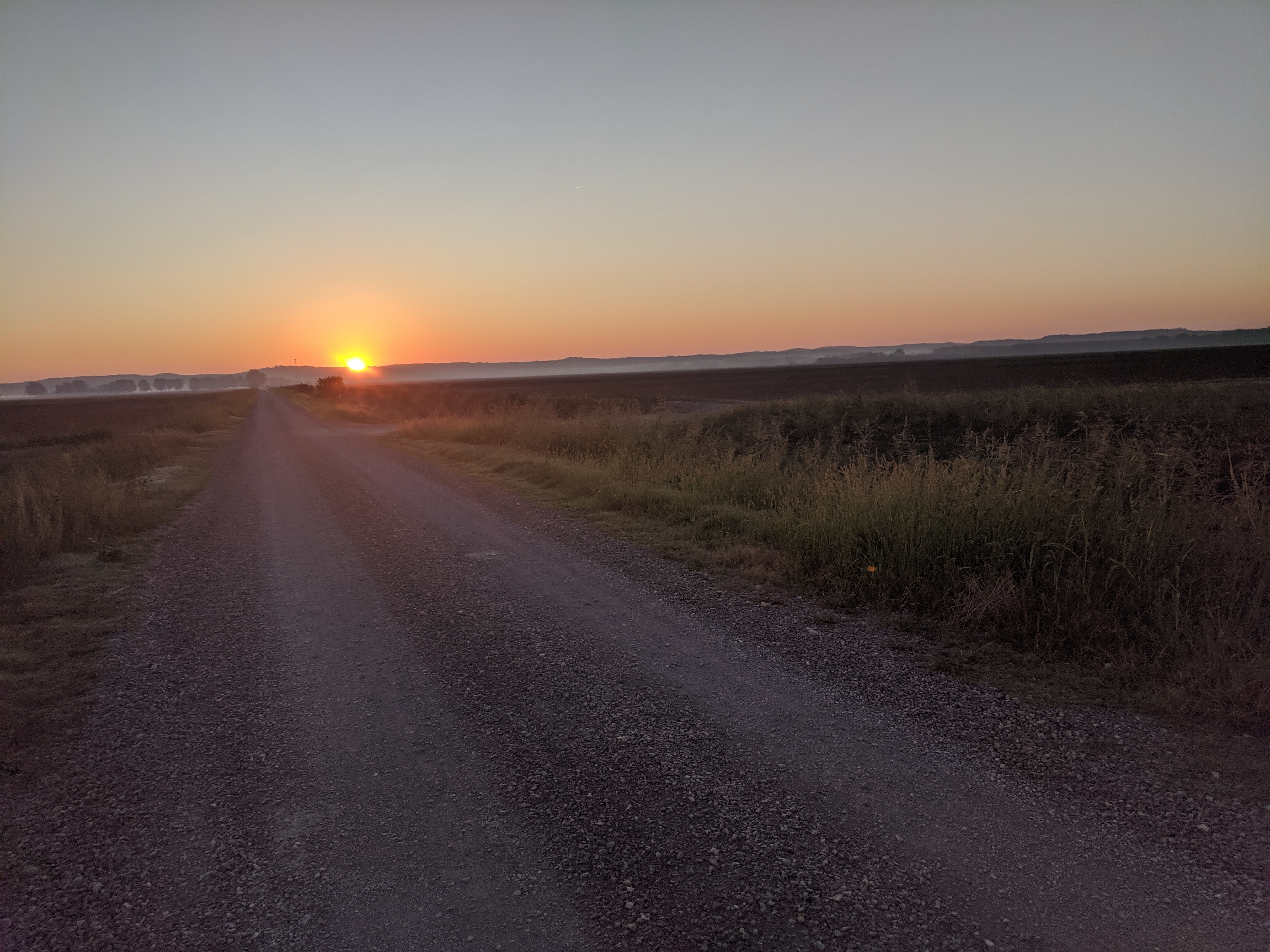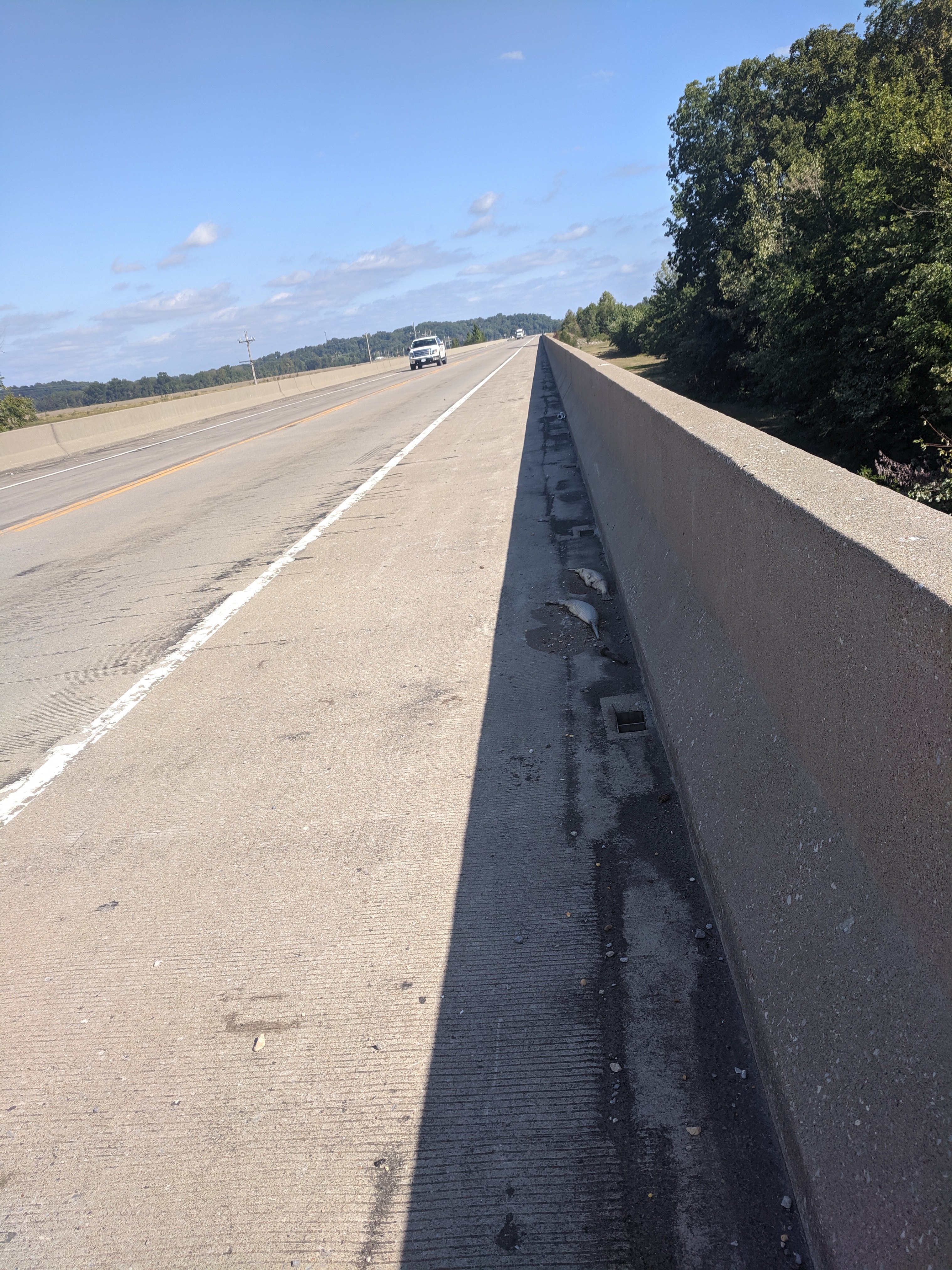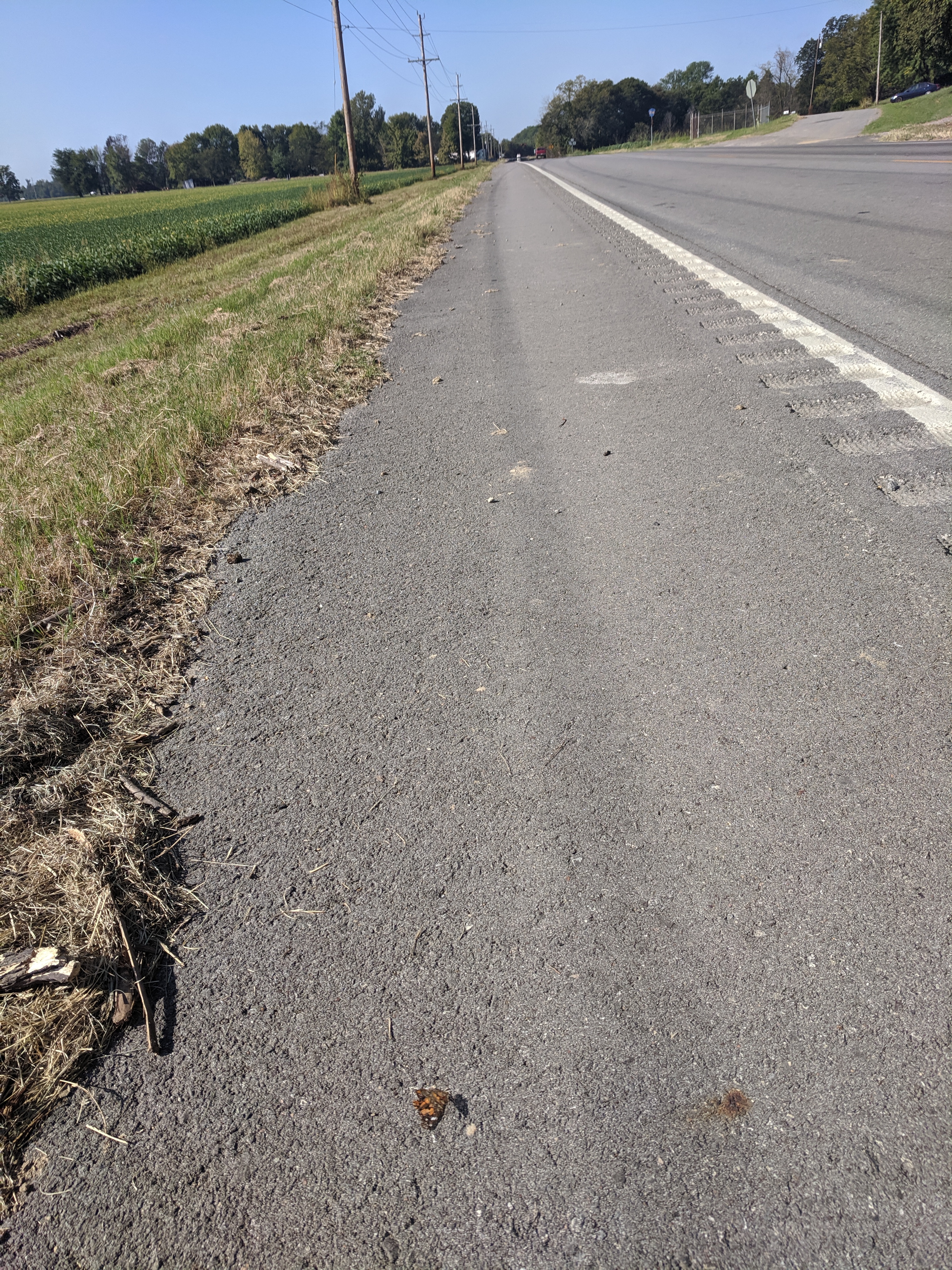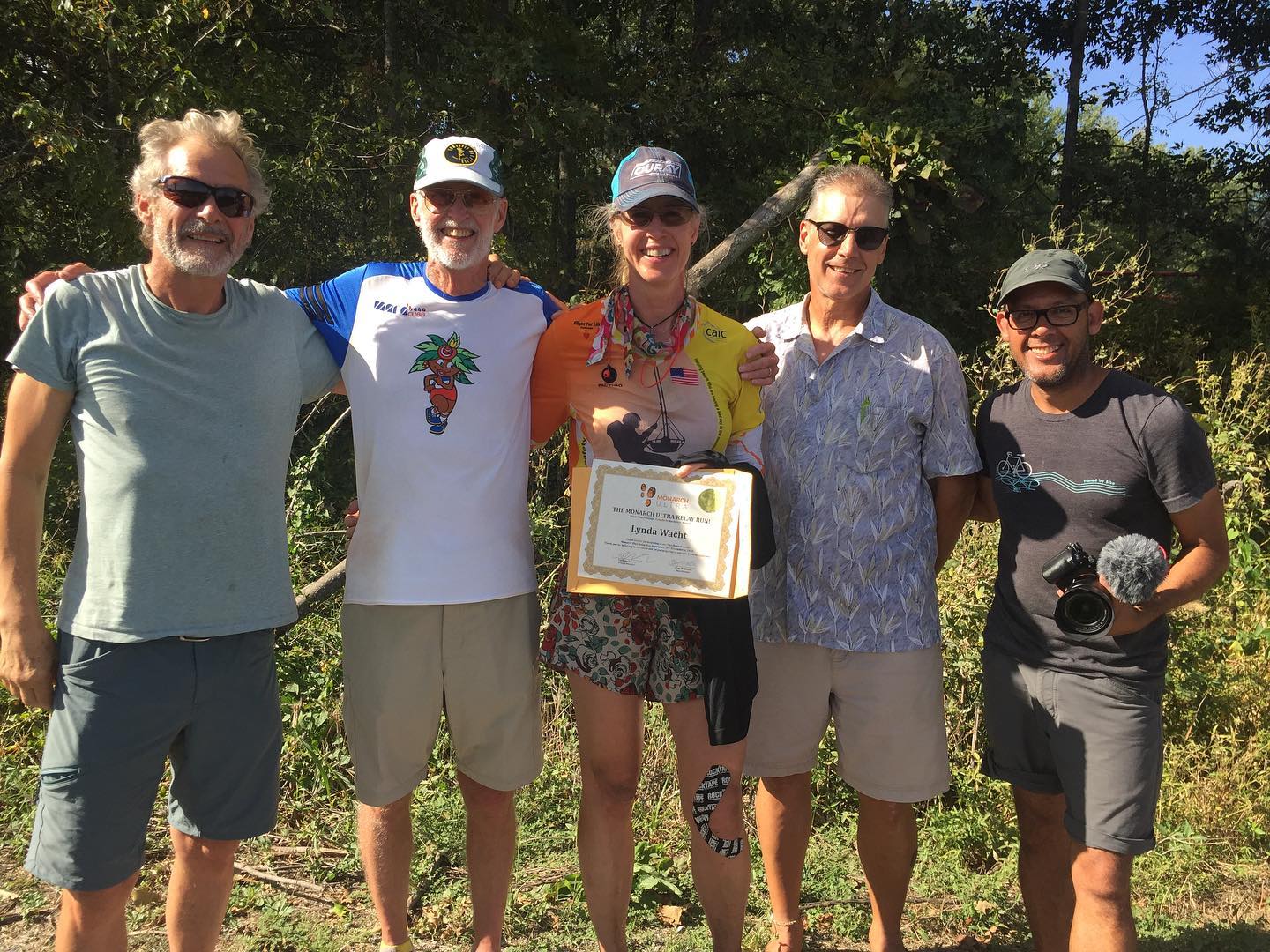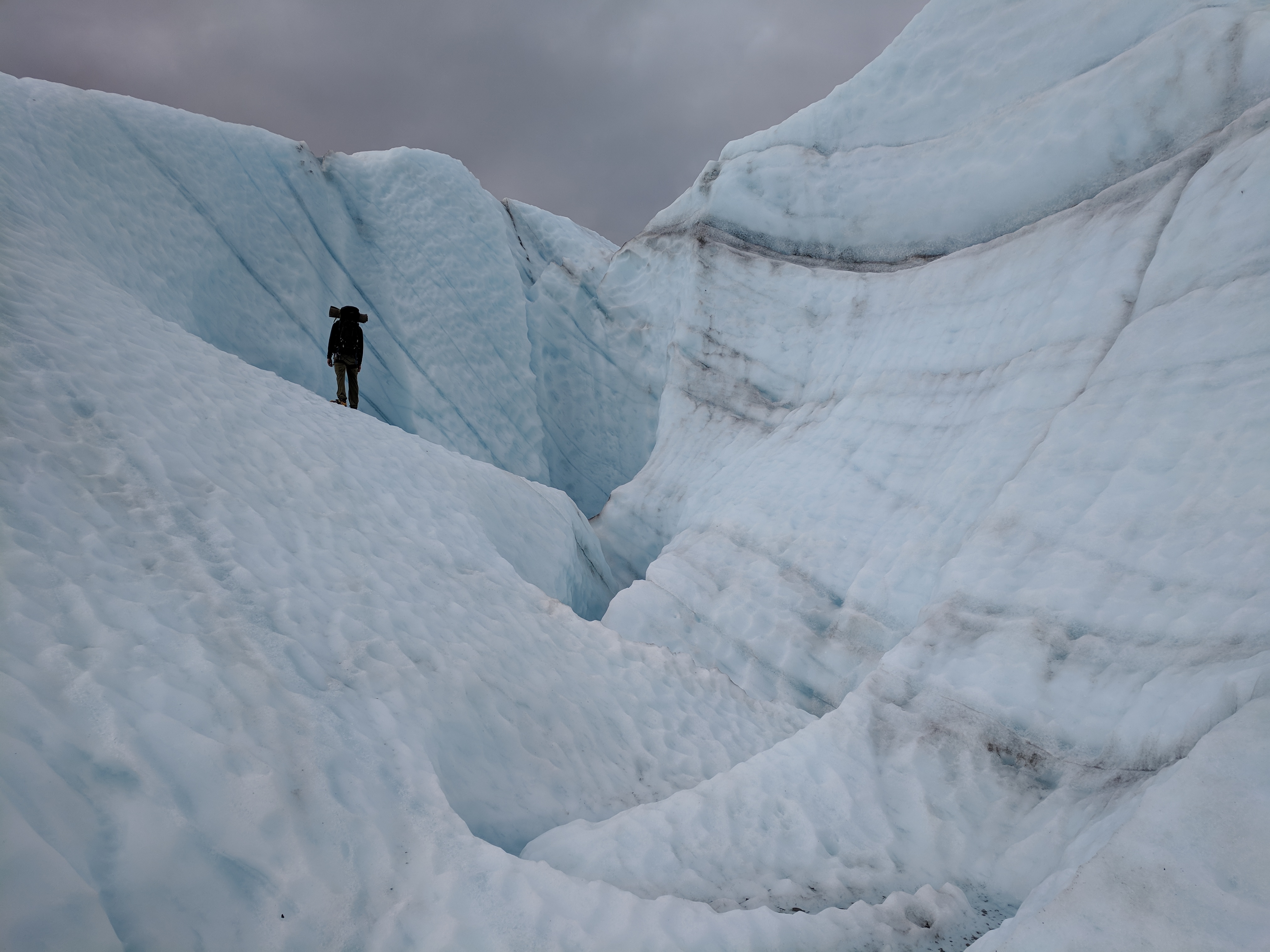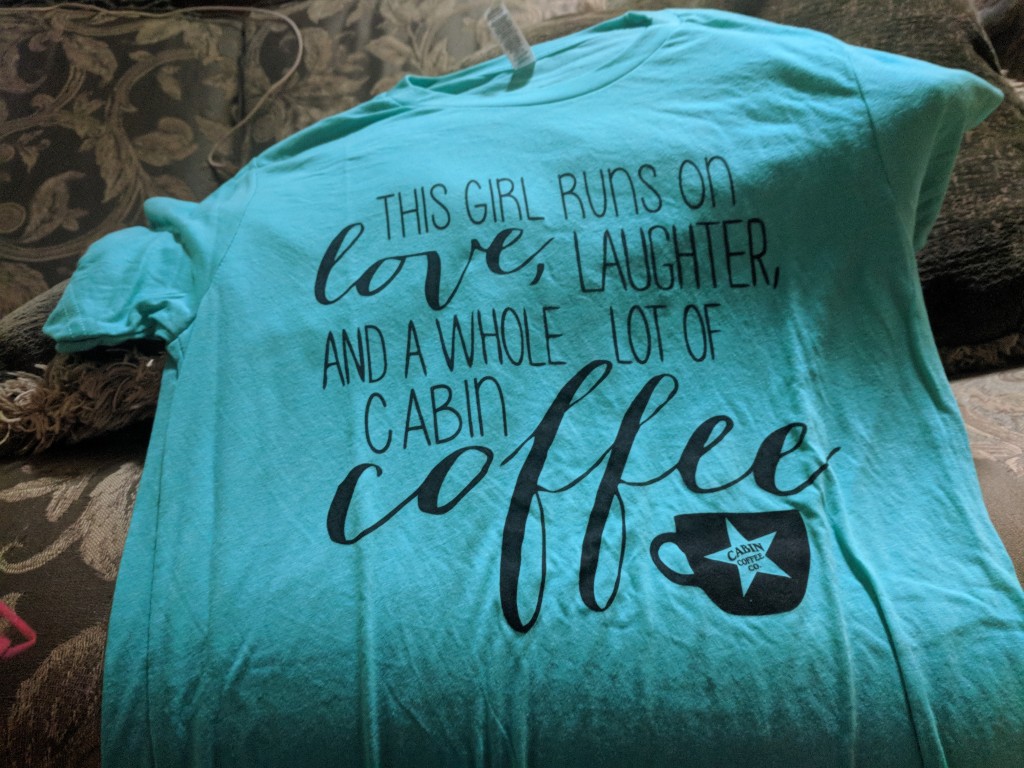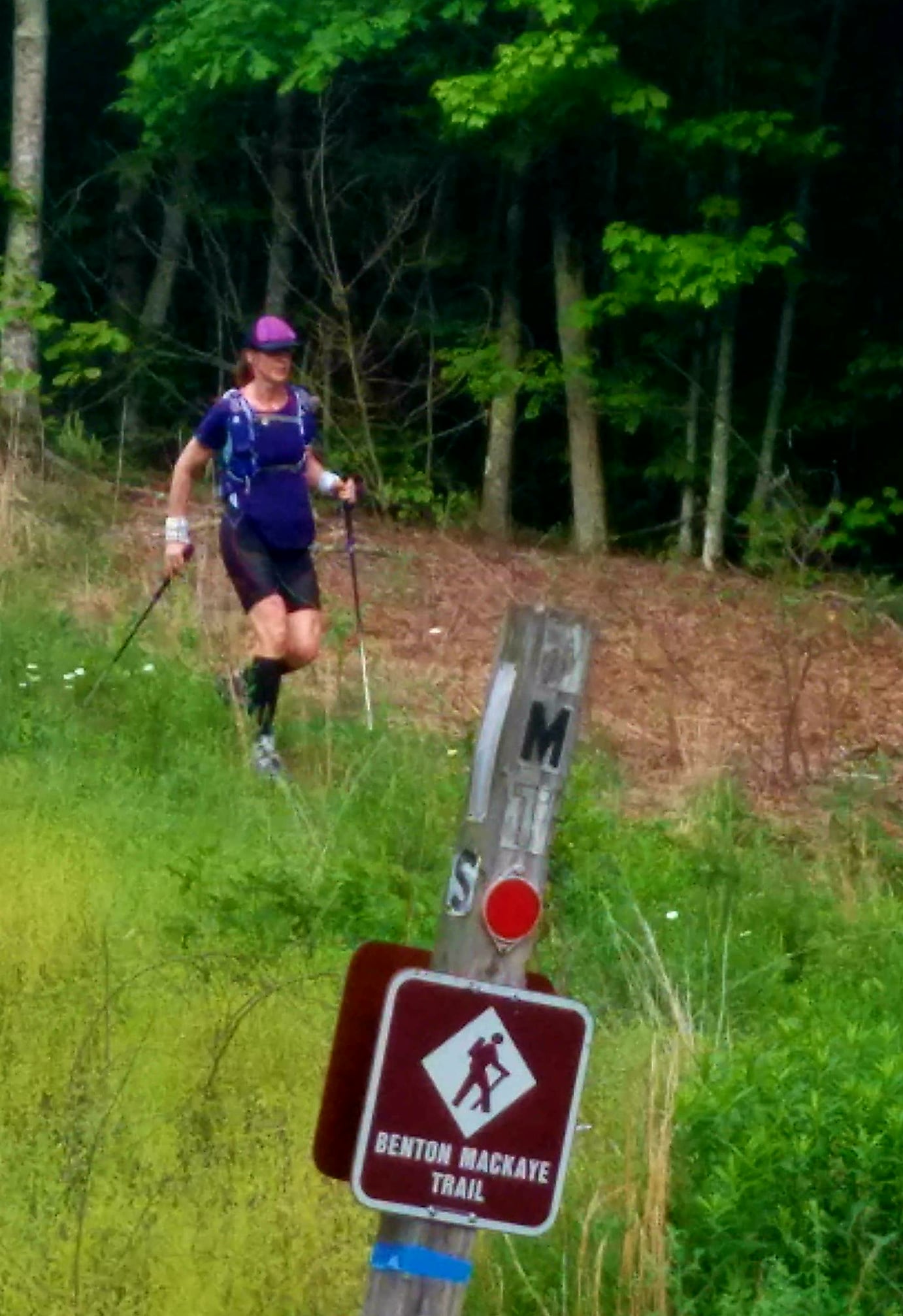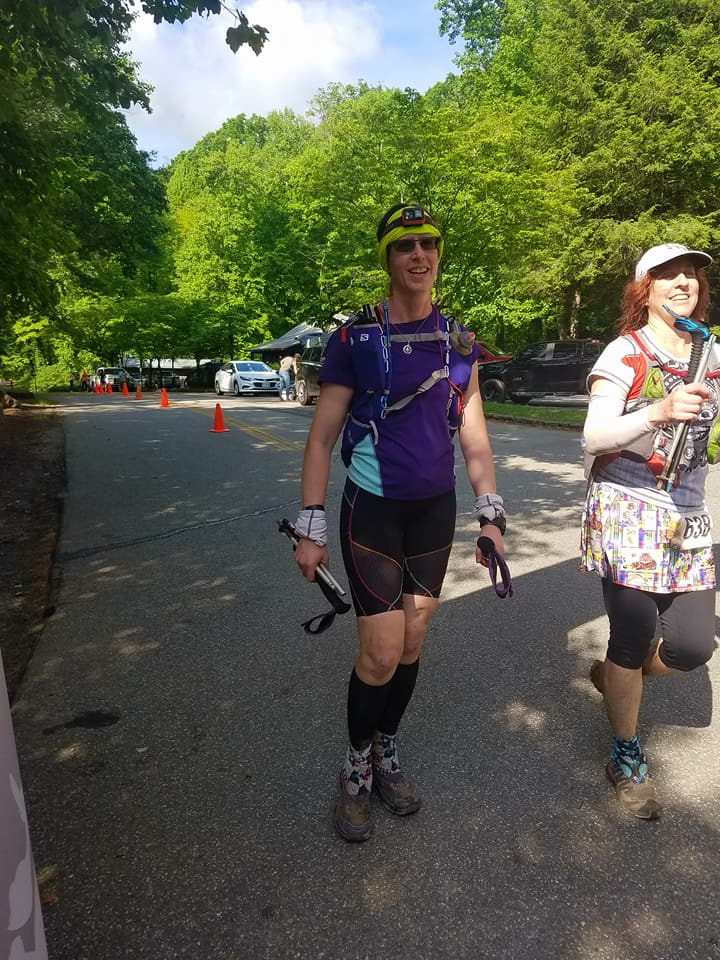When I heard Ecuador was open to travel from both the US and Europe, I knew where I was going. A country that combines two of my great passions: mountains and animals. Chimborazo is one of the great non-technical climbs. The summit is the farthest one can get from the center of the earth. The Galapagos Islands are solely about preserving wildlife, and what better mandate is there than that? Besides, what life is complete without seeing a blue-footed booby?
I found a guide who specialized in ecotourism. A bit of hypocrisy I suppose, to be flying on a jet plane during a global pandemic while also trying to save the planet. I do my best.
I liked that the owner was responsive to my questions–being a South American country, I knew my being a woman would be more of an impediment than usual. It did come up when Wlady, the owner, asked about Olivier’s and my mountaineering experiences. It took me more than a few minutes to write my summary: Kilimanjaro, Rainier, Denali, mountain rescue, forty-something fourteeners (including Mt Whitney), and several peaks in the Alps. Olivier’s experience was a bit quicker to summarize: a staged run in Nepal and one in Costa Rica.
Guess who received the kudos.
I wasn’t too hopeful about finding a guiding company in Latin America that wouldn’t assume I knew less than my male partner, so I didn’t bother to look. To their credit, they did have one female guide.
The company, Ecuador Eco Adventures, had one package that was ideal: Cotopaxi followed by Chimborazo. A way to acclimate while still experiencing a big mountain. A night spent at 15,000ft. Even if one mountain didn’t work out–not just possible but likely–there would be the other.
We arrived in Quito a couple of days before the climb, for a chance to acclimate a little more at Quito’s 9000ft elevation. Even though my plans included several nights in Leadville, Colorado–the highest incorporated city in the US at 10,000 ft–I still wanted every possible advantage. A lot can go wrong on a mountain like that, and with one completely inexperienced climber and a guide who might not appreciate my skills, I intended to go into it as strong as possible.
My training plan was simple but tough. At least every other week, I went to the Manitou Incline, a fierce climb of 2000 ft in a mere mile. It was an ideal “thunder thigh” building exercise. I complemented it with intervals on the Red Rocks stairs, a lesser but still formidable climb.
I became the Strava “Local Legend” of Loveland Pass, with my repeated climbs of the 12k-13k ft first pitch. I’d load up my rescue pack to thirty pounds, put on my heavy winter mountaineering boots, strap on snow goggles against the brutal wind which had already left a frostbite scar on one cheek, and go up and down until I couldn’t anymore, deeply impressing many tourists struggling just to make it up the first time.
And of course, I continued with my usual running training in between. Six to ten mile runs during the week. Six to eight hour runs on the weekends. I talked my friends Rob and Margaret into climbing Mt Evans, Rob and I on foot and Margaret on her hefty mountain bike, while I tested out Diamox, a drug that’s supposed to help avoid issues with acclimating. I was dizzy and nauseous before even starting and didn’t touch the drug again.
After I landed in Quito, I was picked up by a driver hired by the Casa Joaquin Boutique Hotel where we would spend our first two nights. He took the scenic tour from the airport and told me some of the history of Quito and his experiences living there. He took me up a steep, cobblestone road into the city where I could see the collapsing buildings on the edge of the eroded area eating away at the older side of the city. It was straight out of Dr Seuss.
I had the day to myself to explore a little around the hotel. I wandered around to a park, found a quiet coffee shop and enjoyed just being somewhere different. I’ve had enough practice with Spanish over the years that I was able to pick up on snippets of conversation, but mostly I just enjoyed the architecture, flora and weather.

Olivier arrived late that night. I had bought dinner for him at the one open restaurant, but he was too tired to eat. He did bring Belgian chocolate, one of the many perks of our relationship.
Visiting the equator was the top priority for the next day. When you read the tourist blogs, you discover that there are two places to visit: the “official” line and the “real” line. The official one was built based on the calculations of the French explorers in the 1800s. The “real” one is based on the GPS calculations, which often don’t agree with themselves.
The “real” line felt more “real”. The $2 tour gave us a history of the Amazon and its rapidly disappearing world. I can’t say I felt terribly bad that giant reptiles and cannibalism are things of the past, but I do appreciate the loss of cultures as a result of the “westernization” of the world.
The highlight of the tour was balancing an egg. This can actually be done anywhere anytime–with enough patience–but I do love participating in these tourist traps.
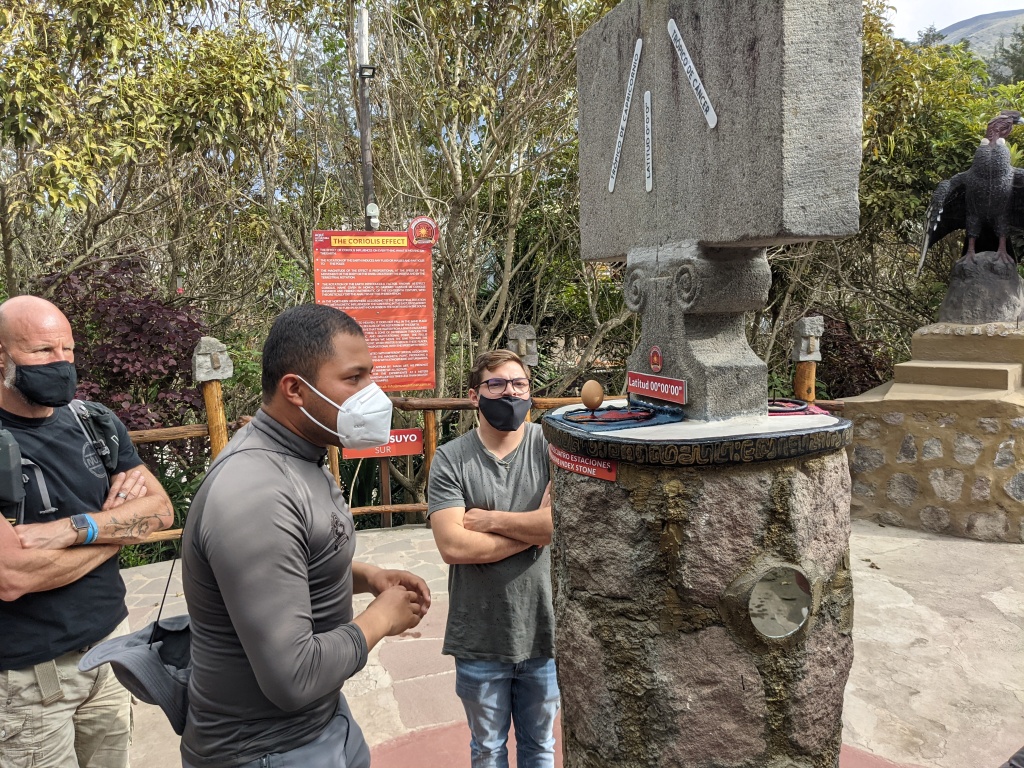
The “official” equator gave a bit more sterilized history in the multi-story monument.

The next day, we met with our guide, Paulo, and headed out to Cotopaxi. The drive wasn’t long and soon the volcano came into view. I felt the familiar knocks of trepidation and excitement. And also a sense of disappointment. The clouds covering the summit did not bode well.
We had lunch at the welcome center just inside the park, then drove up to the refugio at 15,000. It was a short walk from the parking lot and a stark reminder of the elevation. On the way, a small group of young people stopped and asked us in broken English if we were planning on summitting. Our breathless nods were met with awe and excitement and requests for selfies.

The hot chocolate and snacks that greeted us at the refugio were much welcomed. The fact that we were the only climbers that day made for a quiet evening but a cold one as well. We watched the sun and the clouds, both slowly disappearing with the evening.
Dinner was a basic affair of fish, rice, french fries and salad, and more hot drinks. I spent a restless evening, shivering miserably in my sleeping bag, falling asleep of course fifteen minutes before Paulo announced the arrival of midnight and the start of our climb.
Paulo and I were excited about the break in the weather. It was still breezy and the unconsolidated snow from the previous storms would make visibility and climbing more challenging, but at least we had a shot. I piled on my warm gear, my pack already ready, poured the rest of the hot tea and a generous amount of sugar in my water bottle, and we headed out into the night.
The first half mile was a simple hike, but the going was still slow. We roped up as the terrain became steeper and icier. It was cold but I was managing it well and was excited to keep going. Olivier was less so. It was his first big climb and it was obvious the fear of the unknown was overtaking him.
Thanks to climate change, the original standard route was impassable and the new standard route climbed over much steeper terrain. The loose snow meant each step had to be firmly and intentionally planted. I was grateful for my time spent in Leadville as I struggled for each breath. But I could tell Olivier was struggling more.
I hadn’t argued when I was put in the middle of the rope, despite the fact that the middle is generally reserved for the least skilled person. It is the safest place as you have someone in front and behind you to catch any fall. Paulo was not a big guy, even by Ecuadorian standards, and I wasn’t sure even the two of us would be able to catch Olivier if he slipped. I also wanted my eye on Paulo in case he fell, knowing again I could catch him but not him and Olivier.
Breaks were infrequent and short thanks to the unrelenting wind. I ate a couple Honey Stinger gels and drank a couple sips of my super sweet hot tea at each stop, using my ultrarunning trick of fueling as much as I could while I could, knowing a time was quickly coming where I wouldn’t then couldn’t.
That time had come for Olivier before we even started. While I was forcing down a buttered roll before the climb, he was anxiously pacing. His unused water bottle had frozen and his snacks remained in his pocket. Three hours into the climb, he was resting more than he was climbing.
We began another steep climb. I could feel Olivier slipping on most steps, fatigue and inexperience keeping him from planting each step with the necessary force and angle to make it stick. He stopped long enough that Paulo began pulling on the rope, trying to assist. But I was in between and had only enough energy to pull myself up.
Eventually, Olivier admitted defeat with the cry “I can’t”. I relayed the message to Paulo. He came down to discuss it with me–he had figured out quickly during our discussion over dinner that I was the more experienced of the climbers and it was obvious to me that I had his respect.
Barely halfway to the summit, our options were limited to one: going back. Unfortunately for Olivier, that meant he had to lead us back down, a position he was not comfortable with or happy about. It was slow, but we still made it back to the refugio in almost a third of the time.
Olivier went immediately back to bed but it was long before I heard the sound of him throwing up–a sure sign of altitude illness. We had to get him down quickly but the truck and the sunrise were still a couple hours away. I sat with Paulo, sipping hot tea while we waited.
Paulo tried to explain to me that “big men with lots of muscles” required much more time to acclimate than us smaller people. I bit my tongue hard, willing myself not to engage in a futile disagreement.
I’ve been to enough trainings, read enough articles to know that the ability to acclimate remains one of the great mysteries of mountaineering. The only known experiment to prove anything about acclimatization involved the subjects drilling holes in their head to measure cranial pressures, an experiment not soon to be repeated. Much like the stock market, even prior success is no indication of future performance.
I’d been in this uncomfortable position before. A good friend had decided she was up for a three day climb of Mt Whitney. She promised to do at least one night of backpacking, as she’d never slept in a tent. She also agreed to at least a few back-to-back runs or hikes. Instead, each weekend, she opted for sleeping in her bed and lounging Sundays. She didn’t bother with excuses–she just didn’t want to.
When the trip finally came, I ended up carrying most of the gear while being subjected to her endless complaining. After the summit, she ate all the food while I napped in my sleeping bag, forcing us to descend that day rather than spend another night out. My body already exhausted and now fuel deficit, I left all her gear for her to carry or not. After we returned home, she sent me a beautiful card and necklace. She wrote how ungracious I was and was ending the friendship immediately rather than pretend she still liked me.
I’m not proud of the words I sent her but I don’t regret them either.
Olivier was handicapped living in a relatively flat, close to sea level country. I knew that. But I had sent him articles and suggestions for training that would at least in some form compensate. But his foot was hurt and his knees weren’t doing well, so he kept his runs limited in distance and effort.
Cotopaxi was behind us and there was nothing to be done. But Chimborazo was still ahead and I had a decision to make. It boiled down to selfishness and altruism. I could attempt Chimborazo on my own or ask Wlady if there was a smaller peak we could attempt together.
It wasn’t really much of a decision. One of the reasons I do many things alone is so that I don’t have to consider others. It’s not just about doing what I want, but doing what I think is safe or doing what feels right for me. I don’t have to explain myself to anyone. I don’t have to justify my decisions. If it doesn’t feel right, I can just pack up and go home.
But when someone is there, I want them to succeed. I want them to have fun. If I am with someone, whether mountaineering or running or just hanging out together, then the time with and the happiness of the other person becomes my priority.
Chimborazo has a little sister volcano–Carihuairazo–that fit nicely into our plans. We could still spend two days acclimating at a lodge near the base of Chimborazo. We spent one night in Riobamba at the home and hostel of Wlady, having a wonderful dinner with him but otherwise not leaving our room.
While we were making plans for our adventure, Olivier had told me that he had heard that booking flights to the Galapagos would be easier and less expensive from Ecuador. Wlady told us over dinner that it actually may be too late to book airfare and it would certainly be more expensive, ending with me spending a frantic couple hours after dinner trying to make reservations.
Fortunately there were flights but they were not cheap. I was able to book the airfare but not to pay for it. I tried every way I could think. No luck. I tried to not overreact to the thought of not getting to see flue footed boobies.
I was finally able to book airfare to the islands, but not back. I gave up and slept. In the morning, I found a number to call, an English speaking customer support person to explain it, and, most importantly, how to get around it. To discourage tourists but not locals from visiting the islands, there are special flights and airfare available to Ecuadorians. The websites had assumed I was local because of the website I was accessing, allowing me to book the airfare, but my credit card gave away my nationality.
Airfare booked, we drove to the lodge where we’d spend the next two and a half nights. The sleeping quarters were a few steps away from the main lodge, on a large parcel of land, making it wonderfully secluded. The feeling was emphasized by the fact that we were the only two people staying. The crappy weather put a definite damper on the climbing but was making the rest of the trip far more pleasant.
I’d found a trail before we’d left to hike that afternoon. Shortly after reaching the trail, we met an ultra runner training for the UTMB. We chatted with him for a while about his running and the trail before he bid us good luck and continued on his twenty-something mile training run that had taken him to 16,000 feet. Later in the hike, I’d look down at my watch and realize we were over 14,000ft. I barely felt the altitude.

It was a beautiful day and Chimborazo was out in all its taunting glory. The landscape was wide open. Later that night, we’d be treated to a view of both the Big Dipper and the Southern Cross in the intimidatingly clear night sky. Nothing much outside of the tiny white alpine flowers grew at 14,000 feet in Colorado, so the variety of grasses and brush played on my senses, contributing to my sense that were not nearly as high as my watch indicated..
The scene and senses were complete when a herd of alpacas meandered by later. The herder asked for money in the universal sign of rubbing his pointer and thumb together, then allowed us to take photos of him in his wool attire of deep maroon, his serious countenance and the dapper hat that completed the ensemble. On our way back down, we’d find him napping in the grass as his herd enjoyed some rest themselves.

Dinner was the usual meat, rice, french fries and salad, with fruit for dessert. Despite the lack of nausea, I had lost a bit of my appetite. There is a certain feeling of lethargy, from the body adjusting to the different routine, to the altitude, to the food. The chill in the air meant I was drinking my share of hot tea, and it seemed the hydration was keeping the altitude symptoms away.
The next day brought drizzling rain. We did another short hike, this time up a dirt road. We put up with the rain as far as we could, then turned back for more hot drinks. I was glad for the couple of books I had brought with me. I was trying to stay present and take in everything around me, but sometimes an escape from reality is desired.
That afternoon, we were joined by a young crew–a band doing some recordings of songs. From what we could understand, one of the members was the son of the owner of the lodge. The distraction of the music and antics was welcome until it moved to the sleeping lodge. There’s only so many times one can politely ask another to close the door. Happily, our guide had no such inhibitions and soon it was quiet and warm. Just in time for our midnight wake up.
It was an hour drive to the start, with the last few miles on very muddy, very sketchy dirt roads. I was annoyed at being impressed with his driving–I would have much preferred an extra mile or two of hiking over the stress of wondering how we’d get back if we got stuck in such a remote location. He and I both had satellite messengers so at least we had communication with the world. Whether or not it could deliver help in getting us unstuck was another matter.
I wasn’t expecting to encounter much rain hiking these big mountains, so had left the rain cover for my pack at home. I suppose the good news was that the rain turned quickly to snow as we slowly climbed the peak and my pack froze solid. Since this was our last climb, I wasn’t too worried about my gear getting wet but I’m always annoyed with myself for leaving behind a useful piece of gear.
The recent snowfall had increased the avalanche danger, so while we would make a high point that day, we would not be making the summit. We roped up for the final climb, but the lack of snow and the low angle of the climb made it feel a bit gratuitous. Then again, I’m never one to turn away from extra safety measures.
The clouds hid the landscape, giving no indication of what we had accomplished, making it feel both like we were standing precariously at the tip of a high precipice and firmly anchored to the ground. It was still a sense of accomplishment to be standing on that 16,000ft rock. Olivier was grinning widely, I’m sure more in relief than joy, but there was at least some pride and excitement on his face.

Several hours and car rides later, we were back in Quito. Wlady had generously paid for a ride back to the city. We had a beautiful local dinner at a touristy building top restaurant, with an amazing view of the city. After three days of the same meal, we splurged on spicy foods, local wine and an amazing chocolate dessert. It was a good thing we had a bit of a walk back to the hostel.

To accommodate any hiccups in our plans and to give ourselves time to get the needed COVID test, we gave ourselves an extra day before leaving for the Galapagos Islands. That one day almost caused us to need another. We spent a pleasant morning walking around Old Town Quito, admiring the architecture of the churches and the wares of the chocolate shops. Then we hiked up to the statue of the Virgin of the Panecillo, taking photos of the city and mountains as we went. We completed some Christmas shopping at the stalls and watched the performers entertain the small crowd. Off to the side, people were flying kites in the beautiful blue sky.
We made our way back to the hostel. Just feet from the door, I felt someone touch my arm. I looked back in surprise only to be further astonished by the same someone grabbing my phone out of my pocket. I yelled in surprise and reached for the man, managing to grab his shirt before being knocked to the ground. Olivier had reacted quickly to my cry but soon found himself in the same position.
There were four of them, one with a knife. We kept yelling and soon the police came running, their batons swinging and mace out. Three people ended up in the trunks of the tiny police cars and Olivier and I found ourselves at the police station, explaining what happened.
Olivier is a detective by trade and was adamant that the details of the crime be recorded carefully and accurately. I sat there numb, but a far away part of my brain found a bit of amusement in the three languages being batted back and forth, nuances lost and found. I finally found my way through the fog to suggest that Olivier use Google translate.
It may not have captured the detail in the words he was using, but given the limits of human memory especially in crisis mode and of what the police could do anyway, it was good enough.
The police were kind enough to drop us at the mall to purchase a new phone. I was angry and afraid and embarrassed and shaky from the experience. It was little solace at least that the criminals were going to be even angrier that they had risked all that for a $400 Pixel and not the thousand dollar iPhone I’m sure they thought they were getting. I found a decent Samsung for a hundred dollars. Honestly, all I really cared about was having the camera for taking photos in the Galapagos.
Olivier bought me dinner and a beer at the food court before catching a taxi back to the hostel.
The gymnastics of getting to the Galapagos was enough to keep me from dwelling on the incident. I had received one of those vaguely alarmist emails with instructions to show up at the airport two hours early. Our flight was at 6am and the airport was an hour away. We checked in then were instructed to go to a nearby kiosk where we would get our pass and have our bags scanned.
The kiosk of course opened at 5:30. We were second in line and walked through security and straight onto the plane. I’m not sure how anyone behind us in line actually made it. A two hour layover which fortunately was right next to a coffee kiosk that was open, then we were finally in the Galapagos–or at least at the airport. Ten dollars for the shuttle to the ferry, a dollar for the ferry, then we were picked up by the hotel shuttle.
He tried to sell us a hike, but all we wanted was a nap and food. I had spent the time I should have been sleeping trying to sync my new phone. The foreign SIM card would not recognize Verizon and without access to my phone, my two-step security processes was keeping me from logging into pretty much anything. I had at least been able to access my email to get the digital boarding passes for the flight and the results of the COVID test.
The hotel was off the main strip and the room was done in a not-quite-but-almost cheesy penguin theme. Hunger overcame our fatigue and we ventured out. We found one of those hole-in-the-wall places and an amazing meal of odd sea creatures. We walked around some more to become familiar with the area and start planning our few days there.

One of our finds was the Charles Darwin Research Center and another was a great little coffee shop. There were sea lions, lizards and pelicans everywhere. I was absolutely in love, although I fell a bit out of love with the sea lions after being attacked by one. PSA: Don’t wake sea lions up from a nap.. People were cutting up and selling fish in the market, much to the joy of said creatures. We meandered down to the docks and just took in the sights.
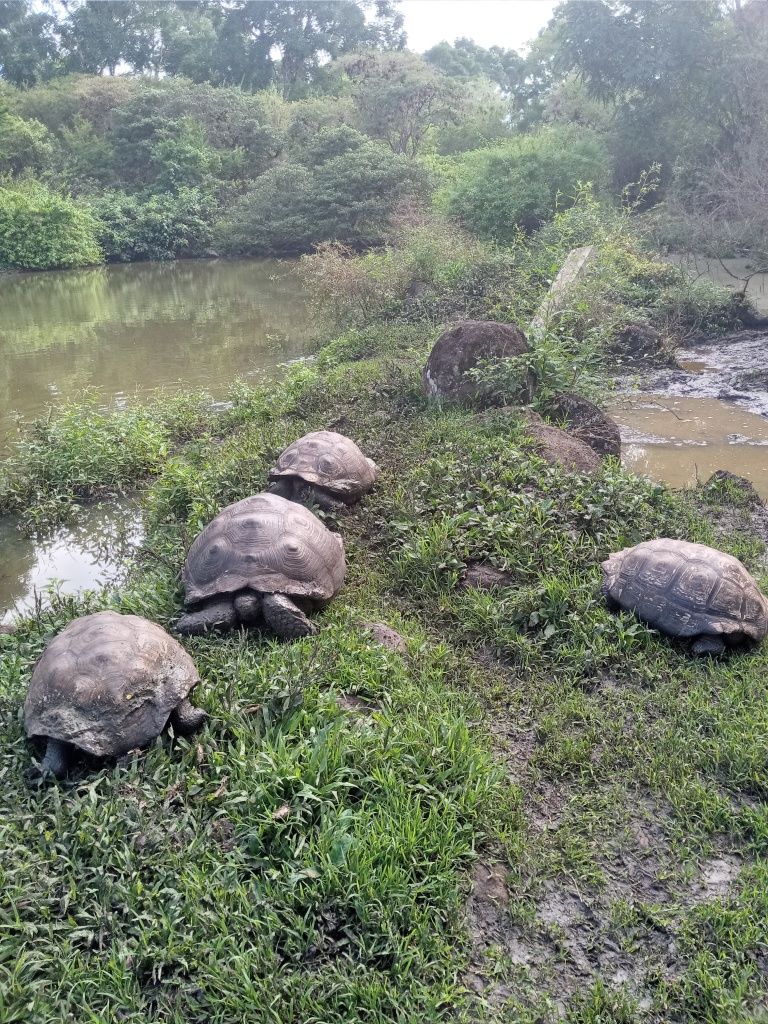
Because of the need to limit human impact on the islands, there is very little that can be done without a guide. It makes the experience feel a lot more touristy than I prefer, walking like kindergartners in single file while the guide drones on for probably the thousandth time about all the wonders of the island. For merely a few thousand more, you can stay on a liveaboard and travel to all the islands, but that was not in our budget.

My main goal was to see the blue footed boobies. I’ve no idea when I first heard of these birds, but how can one not fall in love with the glorious coloring of their webbed feet? So after a morning at the Charles Darwin Research Center learning about the efforts being put into saving the large turtles for which the islands are famous, we booked a tour of Seymour.
We spent the afternoon at the Galapagos beach, a stunningly white beach made a bit desolate by the mile plus walk it takes to get there. I’d hoped to see more animals but was content with the lack of human variety.
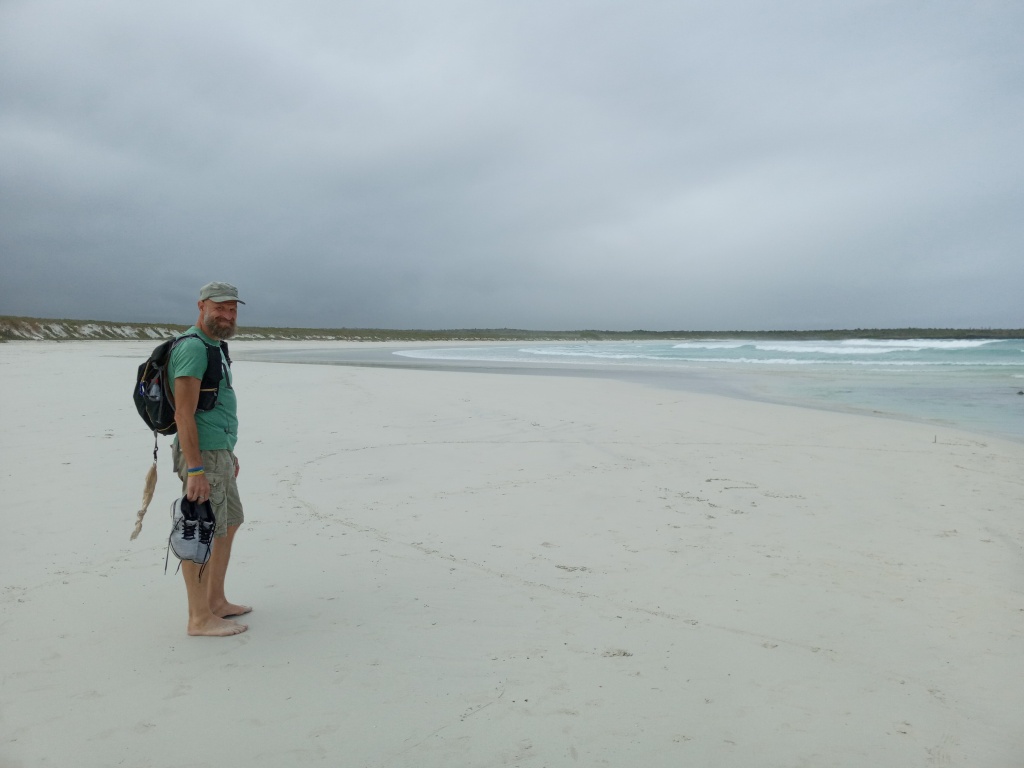
It was past mating season and well into baby season for the blue footed boobies. There were dozens across Seymour. The reasons for the tight control of humanity was made obvious by how close we could get without the animals being afraid. My new phone actually had a better camera than my stolen one, so I was at least grateful for that.
Listening to our guide, I was reminded yet again of why my contribution to saving wildlife was limited to donating money. Many of the blue footed boobies had two babies. The parents can feed both for a couple months but eventually, they can only support one. The weaker baby is either left to die a long, painful death, or is mercifully eaten quickly by another creature of the island.

Lunch and bad wine was served on the boat. We then spent a couple hours snorkeling. I love the water but am constantly reminded of how it doesn’t much like me. The currents soon made me nauseous. I think I saw some fish but not entirely sure. I really wanted to see penguins as well. I hadn’t realized that a specific species lives here, pretty much by accident, but they have adapted to if not thrived in the warmer climes.
That evening, we walked around the docs, having heard of the baby sharks that sometimes swam around there. I posted a photo on Facebook and of course someone had to make reference to the song. Olivier was lucky enough to have never heard it, so of course had to ask. I’m pretty sure that ranks as one of his regrets of the trip.

We decided to sign up for another tour the next day that started with the hike the driver had offered the first day, then a couple more hikes around the volcanic rock by the ocean on Isla Santa Cruz, the island on which we were staying. Seeing so many turtles in their natural habitat was amazing and humbling. It is difficult to see so up close and personal the devastation humankind has managed to bring. Snorkeling again in the afternoon, then back to Puerto Ayora for dinner and rest.

Olivier was tired of the tours so for our third day, we decided to take a ferry ride to another island. The tour operator let us borrow snorkeling gear, telling us of the wonderful ride over and a beautiful place near the docks to see all kinds of fish and possibly even penguins.
They were lies. We opted to sit upstairs to see the views as we traveled across the ocean to Isla Isabela. After about fifteen minutes, all I saw was the inside of my rain jacket as I futilely tried to protect myself from the onslaught of salt water. The sun wasn’t out and I had a hard time believing I hadn’t been transported somewhere far far away from the warmth of the equator. I’ve had a lot of miserable three hours in my life. These three hours ranked in at least the top ten. As we departed the ferry, the seven of us who ended up on top shared grim smiles as we squeezed what water we could out of our clothing.
We had been given passes for the ferry from the tour company and told not to give them to anyone else we would not be able to get back on the ferry. It should not have come as any surprise when the ferry operators requested them before we could get off the boat. After a great deal of back-and-forth–our flight was the next day, so getting back that evening was somewhat mandatory–we gave in and handed them over.
We walked around for a bit, looking for a coffee shop–or anywhere with warm drinks or food–but soon realized the island was far more deserted than Santa Cruz. All development had been stopped on the islands to discourage more tourism, so outside the touristy hub of Puerto Ayora, there was not much to be found.

It took some searching but we finally found the inlet where we could snorkel without a guide. It wasn’t much but it was a pleasant way to spend the afternoon. There was a simple boardwalk to the water, with sea lions napping every few feet. The mangroves held dominant, shielding the area from the surrounding village and dock.
The rocks and sands really were beautiful, but the highlight was seeing a turtle swimming around and the decided lack of people. But it was still cold and I still had a chill from the ferry. We also wanted to make sure we had plenty of time in case there were any issues with getting a pass back. Our names were on the list and we boarded without incident, but the evil thoughts we’d already been thinking about the tour operator
We took the last two seats in the covered part of the ferry, but it wasn’t long before my seasickness began its push. I held off as long as I could, finally semi-warm, but I soon had to head to the back of the boat. I tried to be subtle, but a guide on the ferry quickly offered me a plastic bag and napkins.
The heat from feeling ill helped make the cool from the water tolerable and I stared out at the horizon for the rest of the eternity that the ferry ride took.
I grabbed a dollar popcorn bag from the kiosk by the dock then dragged Olivier back to the coffee shop. It was the first time I wished other countries served coffee in the sizes that the US does. I could really have gone for a venti that evening. The flavour and warmth soon calmed me and I was soon ready to appreciate our final evening on the island.

The next day, we took the reverse course of shuttle, ferry and plane back to Quito. Without the anxiety of the trip out and looking forward only to going home, it was easier to appreciate the time it took to reach the airport. It gave time to reflect on the trip and all that I had experienced in two weeks. I try not to err on the side of toxic positivity, but from experience I know that the joys will outlast the pains of these adventures.
And who wouldn’t long remember blue footed boobies?


